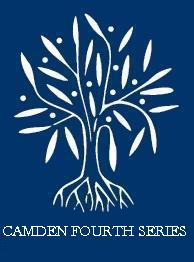No CrossRef data available.
Article contents
VII Thomas Key v. Guillaume des Brosses
Published online by Cambridge University Press: 21 December 2009
Extract
This is one of a number of suits involving English clergy who sought to obtain, or to defend, ecclesiastical benefices in France. Thomas Key claimed a canonry and prebend at Chartres, but was opposed by Guillaume des Brosses, who counter-claimed by virtue of a provision obtained from Pope Martin V in 1422. This counter-claim, as Brosses implicitly recognized, was weakened by the ‘Gallican’ ordinances of the early years of the century, ordinances which had the strong support of the Parlement itself, but whose efficacity he tried to nullify by claiming full papal authority in all matters. Further, as Brosses argued, his nomination had been accepted by the king, so that a possible objection that he had not been accepted in the correct month of the ‘alternative’—the system according to which the pope and the local patrons nominated to benefices on alternate months—could not be held against him.
- Type
- Texts
- Information
- Camden Fourth Series , Volume 26: English Suits Before the Parlement of Paris 1420–1436 , July 1982 , pp. 109 - 115
- Copyright
- Copyright © Royal Historical Society 1982
References
page 109 note a MS Jehan
1 The suit was referred to by Richardson, ‘Illustrations of English history’, 66. For the other cases involving ecclesiastical benefices, see appendix 1.
2 See the account in Fauquembergue, ii, 198 204. The ecclesiastical politics of these years were described by Valois, N., La Pragmatique Sanction de Bourges sous Charles VII (Paris, 1906).Google Scholar
3 Guillaumc des Brosses, M.A., a Parisian graduate in canon law who twice served as rector of the university during the Great Schism, was a Burgundian supporter who had served both Philip ‘the Bold’ and John ‘the Fearless’, and was said to have suffered many losses during the civil troubles of the early years of the century for which he had been ‘très petitement pourveu en saincte église’. In April 1421 he was one of the envoys sent by the French nation to Henry V to seek royal help in obtaining benefices. He was later to act for ‘long temps’ as the scribe to the court of the universitys conservator of privileges; and was acting as archdeacon of Beauvais in 1435 (Fauquembergue, iii, 146, 159Google Scholar). He was said to have died by 1444 (Deniflc and Châtelain, Chartularium, iv, nos 2163 and note. 2179, 2440 and 2597).
4 For Thomas Key, see appendix II.
page 110 note a ct dit interlined
5 Chartres, Eure-et-Loir.
6 Martin V, pope 1417 31.
7 Charles VI, king of France 1380 1422.
8 i.e., the time of the Great Schism, 1378 1417. The legislation referred to is probably that of 1406 and 1407.
9 Peter de Luna was elected Benedict XIII in September 1394; he was deposed by the Council of Pisa in 1409 and by that of Constance in 1417; he died in 1422.
page 111 note a l'a interlined
10 The most precise form appears to be the bull ‘Unam Sanctam’ (Extravag. Com., I, viii, 1).Google Scholar
11 The ‘alternative’ was the system of allowing the pope and local patrons to present to benefices on alternate months, as arranged in the concordat made between Martin V and the French nation in April 1418.
12 The ‘alternative’ came to an end in the spring of 1423, after a five-year period.
13 This kind of argument would have been received sympathetically in the proGallican Parlement.
14 It is not clear which general council, that of Constance or Siena, is being referred to here. Neither achieved any major reform in the matter of papal provisions.
page 112 note a ce interlined
page 112 note b In the margin
page 112 note c In the margin
page 112 note d par vertu desdites ordonnances interlined
page 112 note e In the margin
15 In so doing, the procureur du roi was demonstrating his pro-Gallican sympathies, as this paragraph shows.
16 Philippe de Morvilliers was first président of the Parlement 1418 33.
17 1 October 1425.
18 Jean de Longucil, conseiller 1380, third président of the Parlement 1418 31.
page 113 note a MS provisum fuerat
page 113 note b MS conferandi
19 For the earl of Suffolk, see appendix II.
20 Jean de Fitigny, bishop of Chartres 1418 32.
21 Isabella of Bavaria, widow of Charles VI. She died in September 1435.
22 Amiens, Somme.
23 Arras, Pas-de-Calais.
24 Auxerre, Yonne.
25 Chartres, Eure-et-Loir.
26 Châlons-sur-Marne, Marne.
27 Chalon-sur-Saône, Saône-et-Loire.
28 Pierre Cauchon, appointed bishop of Beauvais in August 1420.
page 114 note a MS sequtii
page 114 note b per repeated in MS
page 114 note c MS acceptatem
page 114 note d recte habet
29 Guillaume Erard was, in these years, regent master in theology at Paris and onetime rector of the university. He later took part in the trial of Joan of Arc.
30 Jean Hubert, of the diocese of Coutances, rector of the university of Paris in 1432, taught in the faculty of canon law from 1423 onwards.


